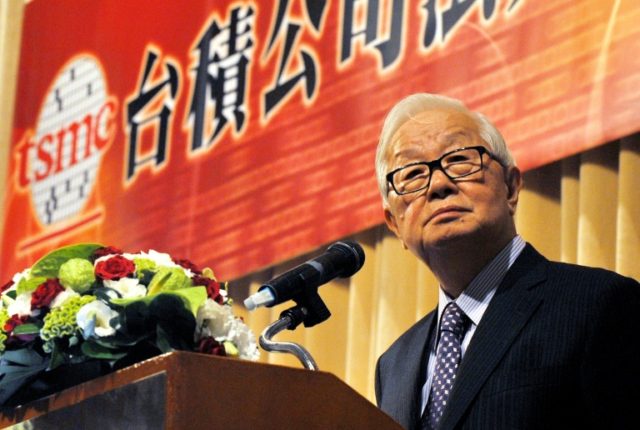Taipei (AFP) – Microchip giant Taiwan Semiconductor Manufacturing Co. (TSMC) says it will create more jobs in the United States as the firm posted record profits.
Chairman Morris Chang said at the company’s earnings conference on Thursday TSMC had already brought “hundreds of thousands of jobs” over the last three decades to the US.
“Mr. Trump has said many times that he wants to create jobs in the United States. We highly applaud that,” Chang said.
“We will continue to create more jobs by helping the fab industry [wafer fabrication – part of semiconductor chip production] in the US,” he told investors and analysts.
Chang’s comment comes after Foxconn, another Taiwanese tech giant, confirmed last month it is in talks over a new US investment, but gave no further details.
TSMC — the world’s biggest contact microchip producer — also announced better-than-expected earnings in the fourth quarter thanks to the launch of the iPhone 7 series.
TSMC is a key supplier for Apple although it has never officially confirmed the iPhone maker as its customer.
Net income in the three months to December surged 37.6 percent from the same period a year earlier to Tw$100.20 billion ($3.2 billion).
Revenue for the quarter came in at Tw$262.23 billion, up 28.8 percent from a year earlier.
“Once again we set a new record in terms of revenue and earnings. 2016 was a good year for TSMC,” said Chief Financial Officer Lora Ho.
“Fourth quarter was definitely strong because of iPhone 7,” said George Chang, analyst at Yuanta Securities in Taipei.
Looking ahead, TSMC forecast revenue growth to be close to 10 percent in the first half of 2017, and 5 percent in the second half from the same periods year earlier.
Communication applications, including smartphones, are by far the biggest source of revenue for TSMC, at more than 60 percent.
TSMC’s Chang said Thursday he sees growth in the global smartphone market, driven by low-end devices, which he projects to grow 8 percent.

COMMENTS
Please let us know if you're having issues with commenting.